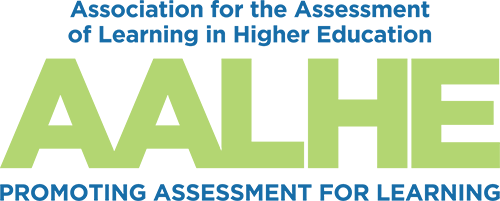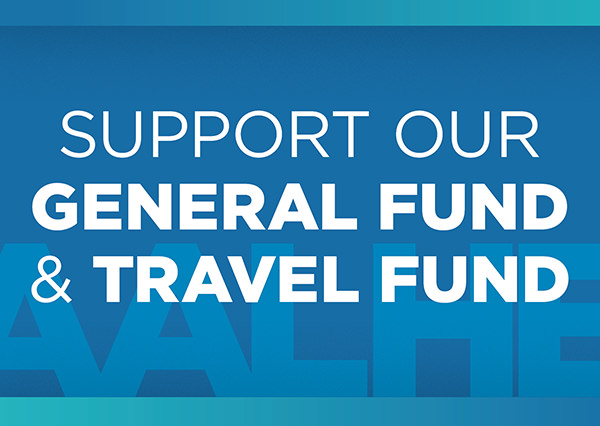- Home
- About AALHE
- Board of Directors
- Committees
- Guiding Documents
- Legal Information
- Organizational Chart
- Our Institutional Partners
- Membership Benefits
- Member Spotlight
- Contact Us
- Member Home
- Symposium
- Annual Conference
- Resources
- Publications
- Donate
EMERGING DIALOGUES IN ASSESSMENTEmbedding Religious Institutional Values in Learning Outcomes Assessment:
September 11, 2025
AbstractThe Catholic Franciscan identity of Marian University has always guided our teaching practices in and out of the classroom. This article highlights our recent efforts in designing institutional learning outcomes and developing and implementing efficient assessment processes driven by our Franciscan Sponsorship Values (Marian University, n.d.). The article concludes with lessons learned and the next steps.
Marian University is a medium-sized institution in Indiana that offers bachelor’s, master’s, and doctoral degrees at multiple campus locations. Our identity as a Catholic Franciscan institution has always guided our teaching practices in and out of the classroom. This article highlights our efforts in developing institutional learning outcomes and designing and implementing assessment processes that are driven by our Franciscan Sponsorship Values (Marian University, n.d.). Historical ContextMarian University piloted an implementation of the Degree Qualifications Profile (DQP) (Adelman et al., 2014) and its baseline set of reference points for what students should know and be able to do to earn a college degree. Academic programs mapped their program-level learning outcomes to the DQP (Adelman et al., 2014) five categories of learning. As a religious institution, a sixth category was identified and we added faith, ethics, and foundation of thought to the list of categories. Curriculum maps were completed, and faculty members began integrating the categories of learning in course syllabi and assignments used for assessing student proficiency. By 2018, we realized that while awareness of the DQP (Adelman et al., 2014) was widespread, the progress to align program-level learning outcomes to the categories had stalled. Efforts to assess these categories were declining too. As a result, Marian University began designing institutional learning outcomes and developing efficient assessment processes that better reflected our Franciscan Sponsorship Values (Marian University, n.d.). Designing Institutional Learning Outcomes and CriteriaIn 2018, Marian University faculty and staff engaged in discussions throughout campus about institutional learning outcomes. Faculty and staff considered the various American Association of Colleges and Universities (n.d.) VALUE Rubrics, the National Institute for Learning Outcomes Assessment’s (2011) Transparency Framework, and best practices in higher education. We were also mindful of our general education goals, the strengths of our current curriculum and co-curriculum, and building on our effective teaching practices. When developing institutional learning outcomes, our primary emphasis was on incorporating Marian University’s (n.d.) Franciscan Sponsorship Values of: (a) Dignity of the Individual; (b) Peace & Justice; (c) Reconciliation; and (d) Responsible Stewardship. Faith & Ethics was identified as one of our five institutional learning outcomes with underlying criteria that build from surface learning to deeper learning and higher-order thinking. However, faculty and staff felt more needed to be done beyond just having one institutional learning outcome focused on faith and ethics. Marian University’s (n.d.) Franciscan Sponsorship Values guide our teaching inside and outside the classroom so it only made sense these values would inform all institutional learning outcomes and drive our assessment efforts. You can view a complete list here. Drawing from the Transparency Framework (National Institute for Learning Outcomes Assessment, 2011), we sought to ensure institutional learning outcomes were clearly stated, integrated with program-level learning outcomes, and shared widely with students. Students are exposed to institutional learning outcomes in every general education course at Marian University. An embedded table includes the institutional learning outcome(s) specific to the course, mapped to the program- and course-level learning outcomes, and the assessment method used. All faculty use this format for syllabi, providing consistency in communicating outcomes and assessment methods to students. To ensure consistent assessment, leaders of our general education curriculum, Marian University’s (2023-2024) Transformational Journey Program (TJP), engage in frequent discussions with deans, department chairs, and program directors responsible for teaching these courses to better understand any questions and provide support. This can be seen when looking at important first-year courses, such as the First-Year Seminar and Health and Well-being. These courses ground the general education curriculum and leaders create blueprints that can be used by faculty and staff instructors. These contain institutional learning outcomes and criteria in the course syllabi, designated assignments, and Canvas (Instructure, n.d.) rubrics. Developing Efficient Assessment ProcessesAmong the major takeaways from our earlier efforts, Marian University learned that we needed to develop more efficient processes. Led by our Institutional Assessment Committee (IAC), this included: (a) collecting meaningful direct assessment data; (b) establishing an annual assessment reporting process; (c) expanding our program review process to include assessment; and (d) providing grant funding to faculty and staff engaging in assessment. Direct Assessment of Institutional Learning OutcomesAssessment professionals have several options when selecting a learning outcomes management system for campus-level direct assessment needs. These helpful systems reduce faculty burden, provide powerful reporting, and encourage meaningful data use. Despite the many benefits, these systems may not be an option for many of us because of budgetary restrictions. At Marian University, we leverage our learning management system, Canvas (Instructure, n.d.), to address our direct assessment needs. Our use of Canvas (Instructure, n.d.) marked a major turning point in the engagement of faculty and awareness of students. Canvas (Instructure, n.d.) supports the creation of institutional learning outcomes and associated rubrics at the administrator level. Once this was accomplished, instructors were able to seamlessly add the outcomes and associated rubrics to their courses. This greatly simplified the assessment process for faculty and increased engagement. Other benefits are that faculty are able to monitor student achievement of institutional learning outcomes through the Learning Mastery Gradebook, allowing it to be viewed in a variety of easy-to-understand formats. Those with administrator privileges can aggregate results for ease of evaluation and reporting. The analysis and reporting are done by our Director of Institutional Research and Assessment who also serves as IAC Co-Chair. Annual Assessment ReportingOverseen by an IAC subcommittee, our annual program-level assessment reporting process seeks to be meaningful by promoting data use among curricular and co-curricular programs. The process also strives to be reasonable and appreciative. Marian University’s annual program-level assessment reporting process places realistic expectations on programs and emphasizes their strengths and accomplishments in assessing institutional learning outcomes. You can view more information here. Comprehensive Program ReviewMarian University’s comprehensive academic program review process is overseen by our Program Review Board and an IAC subcommittee provides support to programs. This process seeks to align program-level plans with institutional learning outcomes and the university strategic plan as well as demonstrate responsible stewardship of university resources. Through our program review process, we have had impactful discussions about market distinction, assessment, teaching effectiveness, program sustainability, and more. You can view more information here. Small Assessment GrantsThe IAC grant program seeks to support faculty and staff in their efforts directly or indirectly assessing student learning and engaging in the scholarship of teaching and learning. Preference is given to collaborative, interdisciplinary, and/or interprofessional projects but both large-scale and smaller projects are considered. An IAC subcommittee reviews all proposals and provides feedback and notification of funding. Alignment with institutional learning outcomes is part of the review process. You can view more information here. Lessons LearnedLessons Learned: Faculty and Staff Serving as Assessment ChampionsOur efforts designing institutional learning outcomes and implementing assessment processes would not be possible without the faculty and staff serving on the IAC. Beyond just attending monthly meetings, these individuals serve as assessment champions in their colleges, schools, and programs. They serve on subcommittees and have represented their colleagues during discussions and also share major takeaways from meetings with their colleagues. These individuals have supported and furthered the use of Canvas (Instructure, n.d.) rubrics, helping their colleagues understand how to create and use the rubrics. They have provided timely and contextual guidance, limiting misunderstandings that can occur among newer faculty. Our assessment champions have knowledge of institutional learning outcomes, assessment processes, and have the ability to train others on the use of processes and tools. Diverse representation on the IAC is invaluable. We found that representation from a variety of colleges/schools, offices, and even perspectives has been critical to the success of the reporting and grant funding processes. Some review programs with an eye toward quantitative measures, while others are more nuanced and examine the qualitative measures. These differing lenses have added depth and breadth to the insights provided. Lessons Learned: Collaborating to Review Outcomes, Rubrics, and Use DataSince the adoption of our institutional learning outcomes, the IAC, General Education Committee, and First-Year Experience have continually monitored the fitness of our alignment and the use of direct assessment data. With turnover among leadership, faculty, and staff, education opportunities ensure new employees are mindful of institutional learning outcomes and know how to access and use Canvas (Instructure, n.d.) rubrics. We continue to improve our training and communication and have begun sharing and using aggregate findings. Faculty and staff serving on the IAC annually review the rubrics used to review annual assessment reports, self-studies, and grant proposals. Early on, we observed some inconsistency between committee expectations and the reports and proposals we received. By carefully reviewing rubric dimensions to ensure they were mutually exclusive and exhaustive, faculty and staff better understood the expectations and we received higher quality reports and proposals. Although this was time-consuming, it helped us provide more thoughtful and informed feedback. ConclusionMarian University annually reviews the alignment of program- and course-level learning outcomes to institutional learning outcomes, and our use of Canvas (Instructure, n.d.) rubrics continues to expand and be more intentional. As a result of their TJP (Marian University, 2023-2024) experience, faculty and staff have integrated these outcomes and rubrics into courses and programs outside of our general education curriculum. All institutional learning outcomes and A- to C-level criteria are addressed and assessed in our general education curriculum. We have been in the process of furthering our co-curricular efforts, addressing and assessing D-level criteria. Continuing to engage student affairs educators will be a primary focus of this current academic year. ReferencesAdelman, C., Ewell, P., Gaston, P., & Geary Schneider, C. (2014, October 1). Degree qualifications profile. Lumina Foundation & National Institute for Learning Outcomes Assessment. https://www.luminafoundation.org/files/resources/dqp.pdf American Association of Colleges and Universities. (n.d.). VALUE rubrics. AAC&U. https://www.aacu.org/value/rubrics Instructure. (n.d.). Canvas LMS. Instructure. https://www.instructure.com/canvas Marian University. (n.d.). Our founders. Marian University. https://www.marian.edu/faith/our-founders/ Marian University. (2023–2024). Transformational Journey Program. In Undergraduate catalog of programs 2023–2024 (p. 28). Marian University. http://www.marian.edu/academics/_assets/_documents/undergrad-2023-2024-catalog-of-programs.pdf National Institute for Learning Outcomes Assessment. (2011). Transparency Framework. University of Illinois and Indiana University, National Institute for Learning Outcomes Assessment (NILOA). |


